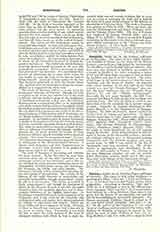

Sozopolis, titular see in the Balkans, suffragan of Adrianopolis. The town, at first called Antheia, was founded in Thrace on the shore of the Pontus Euxinus, principally on a little island, by Anaximander (b. 610-609 B.c.) at the head of Milesian colonists. The name was soon changed to Apollonia, on account of a temple to Apollo in the town, containing a statue of the god 30 cubits high, transported later to Rome by Lucullus and placed in the Capitol. The coins, which begin in the fourth century B.C., bear the name Apollonia and the image of Apollo; the imperial coins, which continue to the first half of the third century A.D., and the “Tabula Peutinger” also contain the name Apollonia; but the “Periplus Ponti Euxini”, 85, and the “Notitiae episcopatuum” have only the new name Sozopolis. In 1328 Cantacuzene (ed. Bonn, I, 326) speaks of it as a large and populous town. The islet on which it stood is now connected with the mainland by a narrow tongue of land. Sozopolis, in Turkish Sizebolou, in Bulgarian Sozopol, is in the Department of Bourgas, Bulgaria. Its 3000 inhabitants, almost exclusively Greeks, lived by fishing and agriculture. Le Quien (Oriens christianus, I, 1181) knows only eight of its bishops: Athanasius (431); Peter (680); Euthymius (787); Ignatius (869); Theodosius (1357); Joannicius, who became Patriarch of Constantinople (1524); Philotheus (1564); Joasaph (1721). This list might be easily lengthened, the see still existing among the Greeks. From being suffragan to Adrianopolis it became in the fourteenth century a metropolis without suffragan sees; it disappeared perhaps temporarily with the Turkish conquest, but reappeared later; in 1808 it was united to the See of Agathopolis and has remained so. The titular resides at Agathopolis, now Akhtebolou, in the vilayet of Adrianopolis, in Turkey. Its relations to the new Bulgarian kingdom are not yet settled. Eubel (Hierarchia catholica medii aevi, I, 194) mentions four Latin bishops of the fourteenth century.
S. PETRIDES

